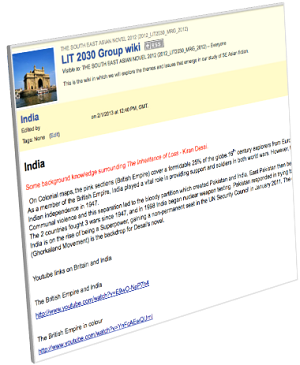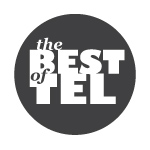By Rob Spence, Associate Head of Department – English & History
 In the Humanities, the written word is still the key method by which assessments are made, so it is crucial that students are adept at all aspects of writing. One issue with the emphasis on written assignments, however, is that they tend to be “high-stakes” activities: get one assignment badly wrong, and it might mean you fail a module. Moreover, traditional lecture and seminar activities are usually confined to the kind of writing that you don’t show to anyone else – notes of one kind or another. So students on Humanities degree programmes seldom have the chance to practise this most crucial aspect of their work. What’s more, in the age of employability, it is arguable that the kind of writing students do in this area is quite narrowly defined – academic essays for a single reader, whose assessment, moderation notwithstanding, is final.
In the Humanities, the written word is still the key method by which assessments are made, so it is crucial that students are adept at all aspects of writing. One issue with the emphasis on written assignments, however, is that they tend to be “high-stakes” activities: get one assignment badly wrong, and it might mean you fail a module. Moreover, traditional lecture and seminar activities are usually confined to the kind of writing that you don’t show to anyone else – notes of one kind or another. So students on Humanities degree programmes seldom have the chance to practise this most crucial aspect of their work. What’s more, in the age of employability, it is arguable that the kind of writing students do in this area is quite narrowly defined – academic essays for a single reader, whose assessment, moderation notwithstanding, is final.
With these considerations in mind, I wanted to use Blackboard to enable students to approach their studies in a different way, one that would give them some experience of working collaboratively too, in more of a “real-world” way than the solitary experience of working on an assignment. The method was to set up groups who tackled aspects of our module topics through Blackboard’s built-in wiki tool. Each group was assigned a discrete area of enquiry, and the brief was to produce entries under agreed headings that would be of use to everyone on the module. In this particular module, which is about contemporary fiction in English from South and East Asia, in particular Malaysia, India and Sri Lanka, it was important that students knew something about the cultural, historical and political contexts out of which the texts they were studying had emerged. Each group was assigned a country, and asked to produce a resource that would be useful to their peers when we came to look at the set texts from that country. We had no hierarchy in mind, though it quickly became apparent that some students would emerge as editors and others as contributors. Inevitably, since the activity was unassessed, some students opted for minimal involvement.
 The task was approached seriously by the majority, and the resources were genuinely useful. They were briefed to use only verifiable, authoritative sources (no Wikipedia!) and to produce original work from the materials they found. They had to consider the purpose and format of their work, and its audience. They also needed to work as a team, and to react to each others’ contributions before agreeing a final version. Anecdotal feedback suggests that those who engaged fully found it very useful both in extending their knowledge and also developing their writing skills.
The task was approached seriously by the majority, and the resources were genuinely useful. They were briefed to use only verifiable, authoritative sources (no Wikipedia!) and to produce original work from the materials they found. They had to consider the purpose and format of their work, and its audience. They also needed to work as a team, and to react to each others’ contributions before agreeing a final version. Anecdotal feedback suggests that those who engaged fully found it very useful both in extending their knowledge and also developing their writing skills.
The wiki tool in Blackboard is easy to use, and enables students to produce professional looking content with the minimum of fuss. In this case, students were driven to think more broadly and independently about the topics, and this was reflected in some very pleasing and original assignments at the end of the module.
 Rob Spence
Rob Spence
Associate Head of Department – English & History
Faculty of Arts and Science
[email protected]
For further help, support and advice on how you can use wikis, web 2.0 tools and other features of the Learning Edge Suite contact your Learning Technologist (see the Faculty Contacts on this page) or email the LTD Team on [email protected] or x7754.
David Callaghan, 26th June 2013

